The New Hampshire is the student-run news of the University of New Hampshire (UNH) since 1911. TNH operates from its headquarters in the Memorial Union Building, covering student life and doings for the college town of Durham, as well as nearby cities like Dover and Newmarket.

John Thomas Scannell was an American player and coach of college football, and also a physician. He was the first head coach of the football team now known as the New Hampshire Wildcats.
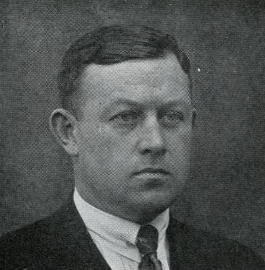
William Harold "Butch" Cowell was an American football player and coach of football, basketball, and baseball. He is best known for his tenure as head coach of the New Hampshire Wildcats football team from 1915 to 1936.

The Colonial Clash was an annual college football rivalry game played between the University of Massachusetts Amherst (UMass) and the University of New Hampshire (UNH). The two teams first played each other in 1897, and met annually from 1952 through 2011. The rivalry was branded as the Colonial Clash beginning in 2010. In 2012, UMass transitioned to the Football Bowl subdivision (FBS) of NCAA Division I, leaving the future of the rivalry in question. In 74 playings, UMass has won 43 games, UNH has won 28 games, and there have been three ties. Beginning with the 1986 playing, the MVP of the game was awarded the Bill Knight Trophy.
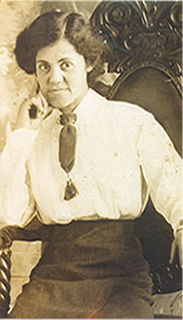
"Dear A&T" is the school song of North Carolina Agricultural and Technical State University. The words were written by Susan B. Dudley, wife of the second president, James Benson Dudley. Music for the poem was composed by Charles E. Stewart, director of instrumental and vocal music at the university from 1909 to 1917.

Edward Dewey Graham was an American college football and baseball player and coach. He served as the head football coach at Norwich University from 1926 to 1930.
Stafford Joseph "Dutch" Connor was an American football player and coach of football and basketball. He played professionally in the National Football League (NFL) with the Providence Steam Roller in 1925 and the Brooklyn Lions in 1926. Connor served as the head football coach at Norwich University from in 1931. He was also the head men's basketball coach at Brooklyn College during the 1935–36 season.
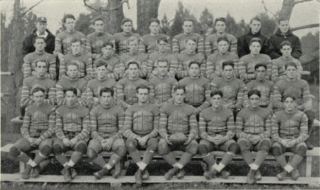
The 1928 New Hampshire Wildcats football team was an American football team that represented the University of New Hampshire as a member of the New England Conference during the 1928 college football season. In its 13th season under head coach William "Butch" Cowell, the team compiled a 3–2–3 record, and were outscored by their opponents, 34–30. The team was shut out five times, although three of those games ended as scoreless ties. The team played its home games in Durham, New Hampshire, at Memorial Field.

The 1923 New Hampshire football team was an American football team that represented the University of New Hampshire as a member of the New England Conference during the 1923 college football season. In its eighth season under head coach William "Butch" Cowell, the team compiled a 4–4–1 record, and outscored opponents by a total of 106 to 75. The team played its home games in Durham, New Hampshire, at Memorial Field.

The 1922 New Hampshire football team was an American football team that represented New Hampshire College of Agriculture and the Mechanic Arts during the 1922 college football season—the school became the University of New Hampshire in 1923. In its seventh season under head coach William "Butch" Cowell, the team compiled a 3–5–1 record, and were outscored by their opponents by a total of 180 to 105. After opening the season with three wins, the team had a five-game losing streak before ending the season with a tie. The team played its home games in Durham, New Hampshire, at Memorial Field.

The 1921 New Hampshire football team was an American football team that represented New Hampshire College of Agriculture and the Mechanic Arts during the 1921 college football season—the school became the University of New Hampshire in 1923. In its sixth season under head coach William "Butch" Cowell, the team compiled an 8–1–1 record, only losing to Dartmouth, while outscoring their opponents by a total of 234 to 66.

The 1920 New Hampshire football team was an American football team that represented New Hampshire College of Agriculture and the Mechanic Arts during the 1920 college football season—the school became the University of New Hampshire in 1923. In its fifth season under head coach William "Butch" Cowell, the team compiled a 5–2–1 record, while outscoring their opponents by a total of 124 to 53.

The 1919 New Hampshire football team was an American football team that represented New Hampshire College of Agriculture and the Mechanic Arts during the 1919 college football season—the school became the University of New Hampshire in 1923. In its fourth season under head coach William "Butch" Cowell, the team compiled a 7–2 record, while outscoring their opponents by a total of 113 to 29. No opponent scored more than seven points against New Hampshire during the season, and the team won four of its games by shutout. This was the first season that the school fielded a freshman football team, in addition to the varsity.

The 1918 New Hampshire football team was an American football team slated to represent New Hampshire College of Agriculture and the Mechanic Arts during the 1918 college football season—the school became the University of New Hampshire in 1923. However, due to World War I, the varsity season was cancelled. The school did field a team composed of Student Army Training Corps (SATC) personnel, which played a five-game schedule.

The 1917 New Hampshire football team was an American football team that represented New Hampshire College of Agriculture and the Mechanic Arts during the 1917 college football season—the school became the University of New Hampshire in 1923. In its third season under head coach William "Butch" Cowell, the team compiled a 3–2–2 record, while outscoring their opponents by a total of 129 to 53.

The 1897 New Hampshire football team was an American football team that represented New Hampshire College of Agriculture and the Mechanic Arts during the 1897 college football season—the school became the University of New Hampshire in 1923. The team played a seven-game schedule and finished with a record of 2–5.

The 1898 New Hampshire football team was an American football team that represented New Hampshire College of Agriculture and the Mechanic Arts during the 1898 college football season—the school became the University of New Hampshire in 1923. The team finished with a record of 3–5 or 4–4, per 1898 sources or modern sources, respectively.
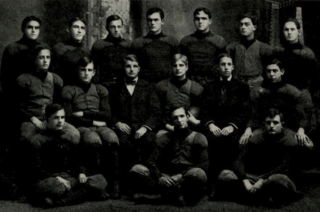
The 1906 New Hampshire football team was an American football team that represented New Hampshire College of Agriculture and the Mechanic Arts during the 1906 college football season—the school became the University of New Hampshire in 1923. Under first-year head coach Edward Herr, the team finished with a record of 2–5–1.
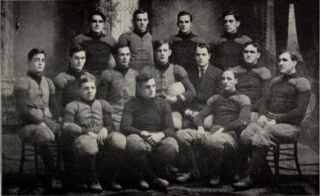
The 1907 New Hampshire football team was an American football team that represented New Hampshire College of Agriculture and the Mechanic Arts during the 1907 college football season—the school became the University of New Hampshire in 1923. Under second-year head coach Edward Herr, the team finished with a record of 1–5–2.

















